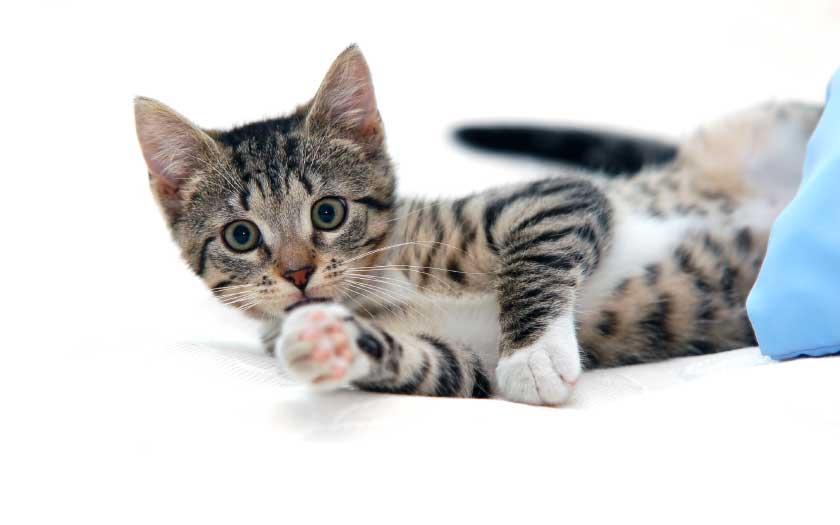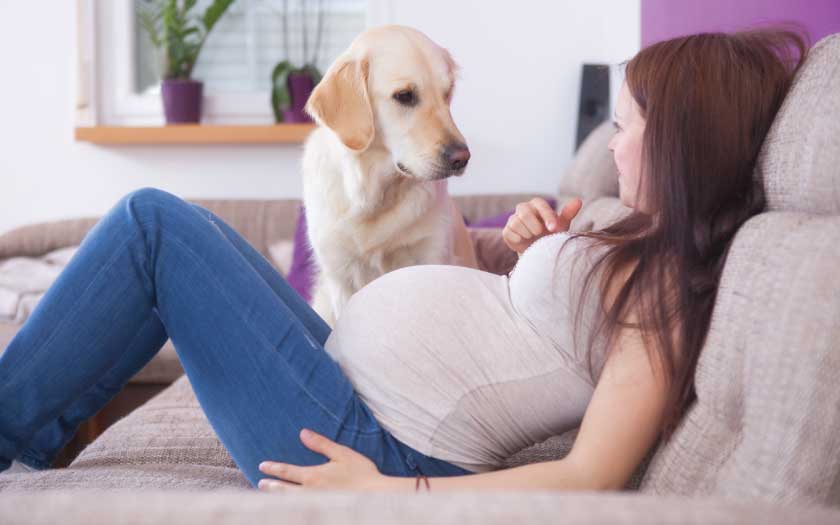Our pets have every right to feel accepted, and loved by their owners and also have their presence acknowledged. However, pregnant women need to be a little more wary when it comes to almost all animals, particularly how to handle them during the duration of their pregnancy. Read on…
Man’s best friend
A dog is truly a joy to have as a pet and many can testify to it. If you are fortunate enough to have one of these furry creatures as a pet in your home, there is absolutely no reason it can’t carry on to be part of your happy family even when you are pregnant. All you need to do is to take heed of the following:
- Regardless of its size, train your dog so that it doesn’t jump on you at anytime. It may take some time and patience on your part, especially if jumping onto your lap for a cuddle was no biggie before this.
- Some dogs, especially puppies love to bite, gnaw and pounce on everything at sight. As harmless as this sounds, it would be best if you take the time to wean your little pup off these habits before your baby arrives.
- If all this time your dog has been especially close to you, ask your partner or another family member to spend more time with it while you’re pregnant to prepare it for the arrival of your new baby, who will be taking up much of your time and attention. That way, your pet will be prepared for it.
- Before your baby comes, make sure your dog has received all relevant vaccinations.

Cats are serene, quiet creatures and they are exceptionally easy to care for. They pretty much keep themselves clean most of the time! However, if you are a pregnant cat owner, do be aware of the threat of toxoplasmosis, an infection caused by single-celled parasites called Toxoplasma gondii, which are commonly carried by cats via their stools.
You can contract this dangerous disease by cleaning kitty litter or by touching soil where cats have passed stools.
For the duration of your pregnancy, it would be best to get someone else to see to kitty’s litter box. Also, if you are an avid gardener, practice extreme caution in case kitty has passed stools in the soil you work on during your gardening.
Toxoplasmosis may have grave consequences for pregnancy and may cause serious complications including birth defects and even miscarriages. In the event where a pregnant mum becomes infected with toxoplasmosis, there is a 50% chance of passing the illness to her baby.
If you are a pregnant cat owner, consult your doctor at once if you experience any of the following:
- Muscle aches
- Headaches
- Swollen glands
- Flu-like symptoms (fever, fatigue, sore throat)
If you are pregnant, you can lower your chance of getting toxoplasmosis by:
- Keeping your cat or cats indoors.
- Washing your hands thoroughly with running water and soap after coming to contact with your cat’s stool or after gardening.
- Keeping away from stray cats.
Pet rodents
Mice, hamsters, and guinea pigs are not as popular as cats and dogs as house pets but they’re nevertheless kept in many homes. If you happen to be pregnant or plan to become pregnant, do be extra careful when handling these furry little things, for as adorable as they are, they are known to carry a dangerous virus called lymphocytic choriomeningitis (LCMV).
House mice, which are wild mice found in many villages, cities, and housing areas, are the main sources of the virus. However, pet rodents such as hamsters and guinea pigs can still become infected with LCMV after being in contact with wild mice, either at a breeding facility, a pet store, or even at home.
Symptoms of LCMV include fever, headaches, stiffness of the neck’s fatigue, lack of appetite, muscle aches, nausea, and vomiting.
Facts about LCMV:
- People can get LCMV through contact with a rodent’s urine, blood, saliva, droppings, or nesting materials.
- The infection can also spread when a person breathes in dust or droplets that have LCMV. Examples: while sweeping up mouse droppings or cleaning out the hamster cage.
- Pregnant women with LCMV can pass the infection to their unborn baby.
- LCMV can cause severe birth defects or loss of pregnancy.
Pregnant moms can lower their chance of getting LCMV by:
- Keeping pet rodents in a separate part of the home
- Asking another family member to care for the pet and clean its cage
- Washing hands with soap and water after handling pet rodents
- Keeping rodent cages clean and free of soiled bedding
- Cleaning the cage in a well-ventilated area or outside
- Keeping pet rodents away from the face
- Avoiding contact with wild rodents
Note: If a house has rats or mice, take care of the problem quickly with either mouse traps or call a professional pest control company (talk to your doctor before using any pest control chemicals in your home).
Your pet reptile
Some families favour the company of more exotic creatures such as lizards, turtles, or even snakes! While they are all legitimate choices, reptile owners, in general, are particularly susceptible to the bacterial infection salmonellosis, which is brought about by a bacteria called Salmonella. You might have heard that salmonella infections come from food sources, such as poultry, meat, and eggs, but the fact is, the infection has also been linked to reptiles.
The tricky part is, even if a pet reptile has been tested negative for salmonella, it doesn’t necessarily conclude it is not infected with the bacteria. Instead, it could mean that it was not shedding salmonella on the day it was tested.
Pregnant women and little children age five and below are at the highest risk of salmonella infection. Salmonella symptoms include nausea, vomiting, abdominal pains, diarrhea, fever, chills, and muscle aches.
The best way for pregnant moms to lower their chances of getting salmonella is by keeping a distance from their pet reptiles for the time being. If that is not an option, then the following should be practiced:
- Wash hands with soap and water after coming to contact with pet reptiles or their stool
- Keep pet reptiles out of the kitchen and other food preparation areas, including sinks
- Clean all surfaces that your pet reptiles have been on
- Avoid undercooked food


